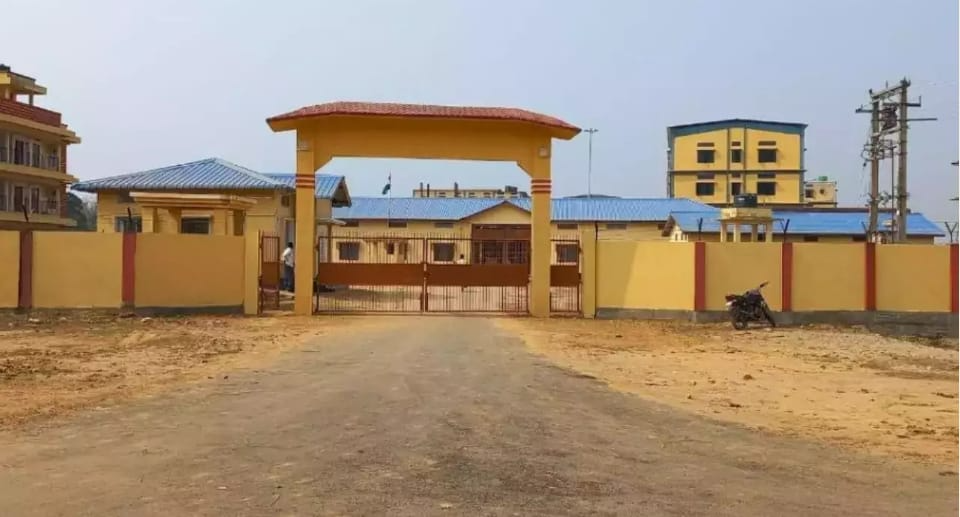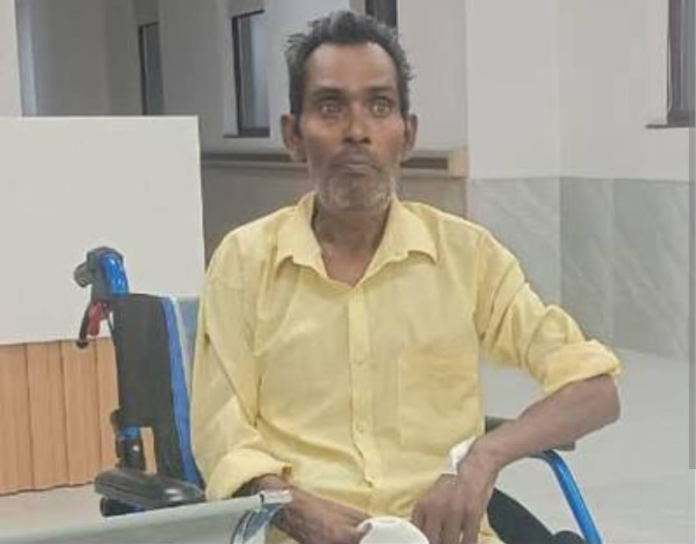Behind the barbed wires of Matia, detainees die waiting for justice, dignity, and recognition as human beings
 – Dr Syed Wahajuddin Hashmi
– Dr Syed Wahajuddin Hashmi
Guwahati: An elderly Bengali Muslim man, Amzad Ali from Rowmari village in Barpeta district, died in custody at Assam’s Matia detention centre, raising fresh questions over the state’s handling of detainees suspected to be undocumented immigrants.
Ali, arrested in May during a crackdown on alleged foreigners, was later diagnosed with cancer. Despite repeated appeals by his family for humanitarian release, authorities denied the requests. His health deteriorated rapidly, and he was admitted to Goalpara Civil Hospital before being shifted to Guwahati Medical College and Hospital, where doctors confirmed his illness. On September 11, he was admitted to the State Cancer Institute in Guwahati, where he eventually passed away.
A Troubling Legal History
Ali’s detention has its roots in Assam’s long-standing citizenship controversies. During the 1997 voter registration, he was tagged as a ‘D’ voter, or dubious voter. By April 2021, a Foreigners Tribunal (FT) had declared him a foreigner – a determination he reportedly learned only at the time of his arrest. His family said he was unaware of the ruling until police arrived to arrest him. They also said the tribunal dismissed documentary evidence including voter lists from 1951, 1966, and 1970 that included his and his parents’ names.

Ali’s cousin, Abdul Jalil, petitioned the Goalpara Deputy Commissioner for his release on medical grounds, but the request was denied. Ali, a father of seven, leaves behind his mother, wife, and children. His family maintains that inadequate medical facilities at Matia contributed to his death.
It should be noted that Assam is the only Indian state with active Foreigners Tribunals. As of July 2024, the north-eastern state has 100 functioning FTs, tasked with deciding the citizenship status of hundreds of thousands of people.
Ali’s death is the second custodial death at Matia this year. In April, 42-year-old Abdul Motlib, also from Barpeta, died while in detention. Both incidents have intensified scrutiny over conditions at the centre, which human rights groups describe as “inhumane and neglectful.”
Matia, India’s largest detention centre, was built specifically to house those accused of being foreigners under Assam’s citizenship regime. Activists have long criticised its overcrowding, inadequate medical infrastructure, and lack of legal aid for detainees.
The Supreme Court, responding to petitions, has over the past year issued a string of orders:
In July 2024, it described conditions as a “sorry state of affairs” – citing lack of proper toilets, sanitation, medical facilities, and clean water.
In October 2024, it directed the Assam State Legal Services Authority (SLSA) to conduct surprise inspections of Matia to verify conditions.
In November 2024, after reviewing SLSA’s report, it noted that even basic amenities were lacking and directed the state to improve facilities within one month.
Despite these orders, Ali’s death highlights ongoing deficiencies in medical care for detainees.
Assam has been at the centre of India’s contentious citizenship debate since the National Register of Citizens (NRC) exercise in 2019, which excluded nearly two million residents, many of them Bengali-speaking Muslims and Hindus. Those declared “doubtful citizens” often face detention while awaiting verdicts from FTs.
Currently, Assam operates six functional detention centres within district jails, alongside the newly built Matia centre in Goalpara. Conditions in these centres have drawn repeated criticism from civil society groups, opposition parties, and human rights activists.
Ali’s death has sparked renewed debate over the humanitarian responsibilities of the state. Legal experts argue that prolonged detention without conclusive proof of foreign origin, combined with denial of medical care, undermines constitutional protections, including the right to life and dignity.
Detention is meant to secure legal proceedings, not to punish or endanger human life. Detainees like Amzad Ali had not been proven to be foreigners. Yet, the denial of medical care directly contributed to his death.
Rights groups warn that Matia and other detention centres have become sites of systemic neglect, disproportionately affecting vulnerable communities. Many detainees are elderly, ill, or unable to navigate the complex legal processes required to prove citizenship.
Ali’s death is not an isolated tragedy. It is part of a wider pattern of marginalisation, particularly for Bengali-speaking Muslims in Assam. Each custodial death reinforces the perception that detention is less about justice and more about control, leaving families bereft and communities fearful.
As the controversy deepens, fundamental questions remain unresolved: Who decides who belongs? How long can someone be detained without proof of foreign origin? And at what human cost? Ali’s death underscores the urgent need for a review of detention policies, improved medical care, and strengthened safeguards to prevent further loss of life.
For the families of those detained, these are not abstract questions – they are matters of survival, dignity, and justice. Until the state addresses these systemic failures, deaths like Ali’s will continue to cast a shadow over Assam’s detention regime.




